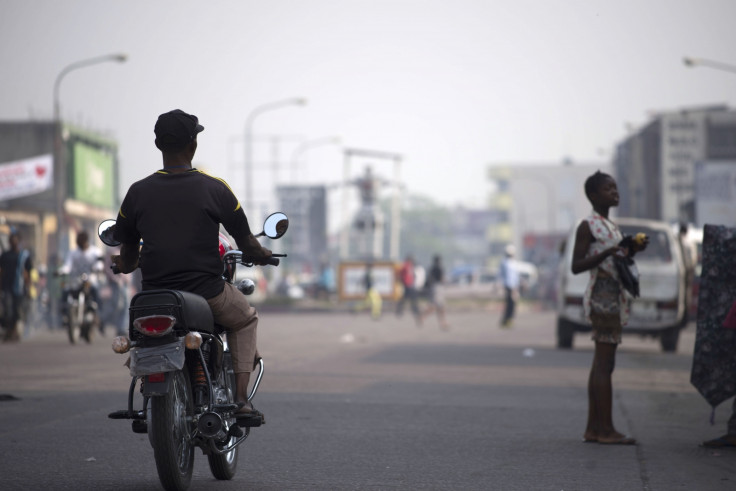DRC: Opposition coalition expects 'no police repression' on 'ville morte' strike day

As the Democratic Republic of Congo (DRC) prepares for a day of rallies and 'ville morte' (dead cities, or general strike) planned by the opposition demanding that President Joseph Kabila holds national elections in November, fears of police repression have dissipated.
Political temperature continues to rise in the mineral-rich nation after both Kabila's PPRD party and the opposition announced they would both be holding demonstrations across the country, fuelling fears of clashes between supporters of the two political camps.
On 16 February, the country's main cities were paralysed by general strike called by a coalition of opposition parties and civil society groups.
Ruling party rally postponed to 'Friday or Saturday'
The ruling People's Party for Reconstruction and Democracy (PPRD) and its allies planned to march on 26 May in support of the region of Beni which is the theatre of frequent massacres of scores of villagers following DRC's constitutional court's decision to extend Kabila's reign in the country if elections scheduled for November this year are delayed. A national dialogue to end the political deadlock has been advanced by the ruling party.
However, the PPRD deputy secretary-general, Emmanuel Shadari, said the rally had been postponed to a later date at the request of the governor of Kinshasa, because police feared it could not control the two events.
"We had a difference in opinion with the urban authority, that said it could not align us all on the same avenue, to avoid a confrontation. He [the governor] begged us to postpone our event on Friday or Saturday, in the greatest interests of the people of the capital Kinshasa "said Emmanuel Sadari, according to Radio Okapi, the United Nations radio in DRC.
He added: "We accepted because the reasons he cited are 55% acceptable."
#DRC #Kinshasa ongoing opposition demonstrations. March route. pic.twitter.com/Pxkpcsu7sQ
— Genvisec Infomap (@GenvisecInfomap) May 26, 2016
The spokesman for the opposition movement Front Citoyen, Jean-Claude Katende, confirmed the march was postponed because the ruling party "had chosen the same itinerary as that proposed by the opposition. The confrontation was predictable".
Front Citoyen: 'No fears of police repression' during march
Thursday's peaceful marches, organised by the opposition - including the G7, the Dynamique de l'Opposition and the Front Citoyen, were officially held early morning in Kinshasa, but not Beni, Goma or Lubumbashi in the Haut-Katanga province, Katende confirmed. However, by the end of the morning, witnesses spoke a stand-off between demonstrators and police in Goma.
Kinshasa on Thursday woke up to fewer traffic, after the parties also called for a strike by transport companies - as part of the "ville morte" operation. The University of Kinshasa (known as Unikin) also appeared deserted, according to students.
#RDC: Kinshasa transports publics assez vides et surtout peu nombreux
— #26MaiCongo #BENI (@ManyaRiche) May 26, 2016
Chacun manifeste à sa manière
1/2 #VilleMorte pic.twitter.com/oML8bdTf13
#Kinshasa #Yebela Unikin Cité Fantôme pic.twitter.com/FBgHTSWwsc
— Justice for Beni (@SoraZiZ) May 26, 2016
"Our rally in Kinshasa is happening because the authorities and the organisers agreed it would take place as planned, but there have been issues in the provinces," Katende, a lawyer and human rights activist, told IBTimes UK.
The national president of the African Association for the Defense of Human Rights (ASADHO) in Congo explained the opposition called the population to rally "to reject the constitutional court's ruling and show our compassion with the victims of Beni".
While previous protests and opposition rallies have been marred by police violence and repression, Katende said he believed such violence would be unlikely.
"I don't think there is any risk of police repression on the rally, because everyone (authorities) has agreed that our march could take place. Three weeks ago, when the Dynamique de l'Opposition held a meeting in Kinshasa, it went well, so there should not be any problems today," the activist said over the phone from the capital.
Au point de départ de la marche de la dynamique de l'opposition. pic.twitter.com/UvLDcs5oDS
— JEAN LUCIEN BUSSA (@JeanlucienB) May 26, 2016
The opposition coalition, including dozens of political parties and civil society organisations allied to the two main opposition parties in parliament, have accused the government of attempting to defer the elections - efforts characterised by the concept of "glissement" or "sliding" - to supposedly give the regime enough time to amend the constitution in favour of Kabila running for a third term.
Supporters of the democratic change-over in DRC, who have been using the hashtag #Yebela (meaning Know-it, in lingala, a language spoken in DRC), said they hoped it would help increase public awareness on the dangers of a sliding, or delay of the elections, and ask for the incumbent president to step down.
UPDATE
26/05/16 - 12:29 GMT
Anti-riot police has used tear gas to disperse protesters in Kinshasa. Witnesses say protesters also threw rocks at the police.
#DRC: Police fire teargas in #Kinshasa to prevent protesters from continuing past Maison Schengen on 24 Nov. Avenue pic.twitter.com/ybkbuZFbrM
— Ida Sawyer (@ida_sawyer) May 26, 2016
© Copyright IBTimes 2025. All rights reserved.






















